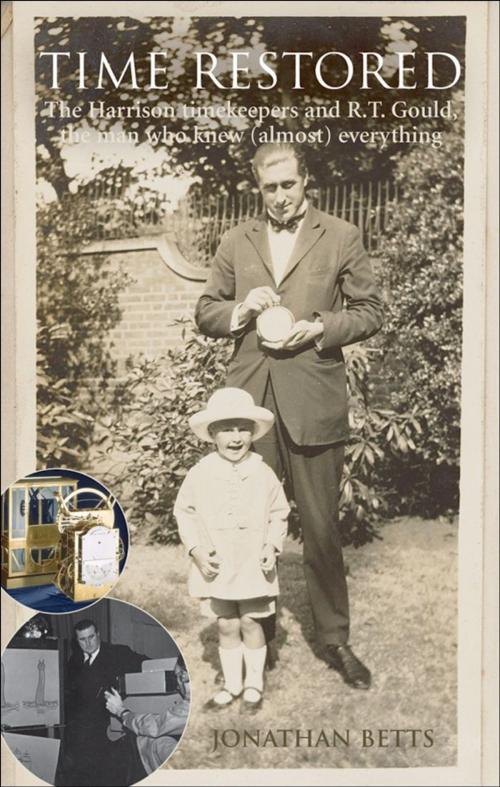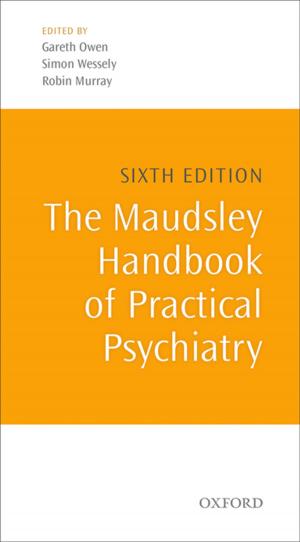Time Restored
The Harrison timekeepers and R.T. Gould, the man who knew (almost) everything
Nonfiction, Science & Nature, Science, Other Sciences, History, Technology| Author: | Jonathan Betts | ISBN: | 9780191620843 |
| Publisher: | OUP Oxford | Publication: | May 19, 2011 |
| Imprint: | OUP Oxford | Language: | English |
| Author: | Jonathan Betts |
| ISBN: | 9780191620843 |
| Publisher: | OUP Oxford |
| Publication: | May 19, 2011 |
| Imprint: | OUP Oxford |
| Language: | English |
This is the story of Rupert T. Gould (1890-1948), the polymath and horologist. A remarkable man, Lt Cmdr Gould made important contributions in an extraordinary range of subject areas throughout his relatively short and dramatically troubled life. From antique clocks to scientific mysteries, from typewriters to the first systematic study of the Loch Ness Monster, Gould studied and published on them all. With the title The Stargazer, Gould was an early broadcaster on the BBC's Children's Hour when, with his encyclopaedic knowledge, he became known as The Man Who Knew Everything. Not surprisingly, he was also part of that elite group on BBC radio who formed The Brains Trust, giving on-the-spot answers to all manner of wide ranging and difficult questions. With his wide learning and photographic memory, Gould awed a national audience, becoming one of the era's radio celebrities. During the 1920s Gould restored the complex and highly significant marine timekeepers constructed by John Harrison (1693-1776), and wrote the unsurpassed classic, The Marine Chronometer, its History and Development. Today he is virtually unknown, his horological contributions scarcely mentioned in Dava Sobel's bestseller Longitude. The TV version of Longitude, in which Jeremy Irons played Rupert Gould, did at least introduce Gould's name to a wider public. Gould suffered terrible bouts of depression, resulting in a number of nervous breakdowns. These, coupled with his obsessive and pedantic nature, led to a scandalously-reported separation from his wife and cost him his family, his home, his job, and his closest friends. In this first-ever biography of Rupert Gould, Jonathan Betts, the Royal Observatory Greenwich's Senior Horologist, has given us a compelling account of a talented but flawed individual. Using hitherto unknown personal journals, the family's extensive collection of photographs, and the polymath's surviving records and notes, Betts tells the story of how Gould's early life, his naval career, and his celebrity status came together as this talented Englishman restored part of Britain's - and the world's - most important technical heritage: John Harrison's marine timekeepers.
This is the story of Rupert T. Gould (1890-1948), the polymath and horologist. A remarkable man, Lt Cmdr Gould made important contributions in an extraordinary range of subject areas throughout his relatively short and dramatically troubled life. From antique clocks to scientific mysteries, from typewriters to the first systematic study of the Loch Ness Monster, Gould studied and published on them all. With the title The Stargazer, Gould was an early broadcaster on the BBC's Children's Hour when, with his encyclopaedic knowledge, he became known as The Man Who Knew Everything. Not surprisingly, he was also part of that elite group on BBC radio who formed The Brains Trust, giving on-the-spot answers to all manner of wide ranging and difficult questions. With his wide learning and photographic memory, Gould awed a national audience, becoming one of the era's radio celebrities. During the 1920s Gould restored the complex and highly significant marine timekeepers constructed by John Harrison (1693-1776), and wrote the unsurpassed classic, The Marine Chronometer, its History and Development. Today he is virtually unknown, his horological contributions scarcely mentioned in Dava Sobel's bestseller Longitude. The TV version of Longitude, in which Jeremy Irons played Rupert Gould, did at least introduce Gould's name to a wider public. Gould suffered terrible bouts of depression, resulting in a number of nervous breakdowns. These, coupled with his obsessive and pedantic nature, led to a scandalously-reported separation from his wife and cost him his family, his home, his job, and his closest friends. In this first-ever biography of Rupert Gould, Jonathan Betts, the Royal Observatory Greenwich's Senior Horologist, has given us a compelling account of a talented but flawed individual. Using hitherto unknown personal journals, the family's extensive collection of photographs, and the polymath's surviving records and notes, Betts tells the story of how Gould's early life, his naval career, and his celebrity status came together as this talented Englishman restored part of Britain's - and the world's - most important technical heritage: John Harrison's marine timekeepers.















